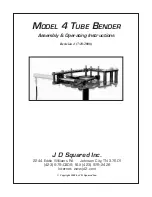
Sono
Stim
Service
1.2. Gerätebeschreibung.doc
Seite 5 von 7
1.2. Device Description
20.07.2000
Page 5 of 7
Simultanbetrieb
Im Simultanbetrieb wird Ultraschall- und Reizstrom-
therapie kombiniert. Der Reizstrom wird durch den
SonoStim nur durchgeschleift. Die Überwachung des
Stromes obliegt dem Sinus 5 (Galva 5). Dieser gibt den
Reizstrom über die Kathode (Schallkopf SonoStim) an
den Patienten weiter. Als Anode dient das Patienten-
kabel (rote Klemme) des Reizstromgerätes. Sobald der
Sinus 5 (Galva 5) auf spannungskonstanten Betrieb
(CV_Sim) umgeschaltet wird, wird dies von einem
eingeschalteten, über ein SS5-Kabel verbundenen
SonoStim erkannt.
Nun werden beim SonoStim die Ultraschallparameter
angewählt und die Intensität hochgeregelt. Die
Therapiezeit und der Programmablauf werden über das
Reizstromgerät gesteuert. In der Anzeige des SonoStim
erscheint anstatt der Therapiezeit ein Symbol für
Simultanbetrieb als Ultraschallkopf und Reizstrom-
elektrode.
Die Leistungsabgabe kann bei Simultanbetrieb analog
zum Normalbetrieb erhöht und erniedrigt werden.
Ebenso findet auch die Überwachung der Kopplung
statt.
Wird vom Reizstromgerät die Therapie beendet, so wird
auch die Ultraschalltherapie beendet. Die Leistungs-
abgabe wird abgeschaltet, es ertönt das “
beende
“-
Signal, der Status wechselt von "
aktiv
" auf "
beendet
",
und es erscheint wieder die Anzeige der Rest-
Therapiezeit (die in diesem Fall Null ist).
Am Sinus 5 und Galva 5 ist in dieser Betriebsart die
positive Polarität zwingend eingestellt, d.h. die Taste
"
Polarität
" ist gesperrt. Der Galvanisationspegel wird auf
0% zurückgesetzt, kann jedoch explizit wieder
zugeschaltet werden. Es sind nur Stromformen
zulässig, die auf spannungskonstanten Betrieb (CV-
Sim) umgeschaltet werden können.
Bei dem Reizstromteil handelt es sich um einen
Niederfrequenzverstärker, der am Ausgang ein
Constant-Voltage-(CV)-Signal liefert, welches für
Simultanbetrieb notwendig ist. Im Constant-Current-
(CC)-Betrieb könnte es zu einer Gefährdung des
Patienten kommen, da der Schallkopf nicht dauernd am
Körper aufliegt. Wäre im abgehobenen Zustand die CC-
Endstufe voll durchgeschaltet, bekäme der Patient beim
Wiederauflegen des Schallkopfes einen kurzen
Stromschlag. Deshalb ist im Simultanbetrieb nur der
CV-Sim-Betrieb zulässig.
Combined Operation
In simultaneous operation, ultrasonic and stimulating
current therapy are combined. The therapy current is
passed only through the SonoStim. The supervision of
the current is controlled by the Sinus 5 (Galva 5). This
passes the therapy current to the cathode (ultrasonic
head Sinus 5) and so to the patient. The patient cable
(red clip) of the therapy current device serves as the
anode. As soon as the Sinus 5 is switched to constant
voltage operation (CV_Sim), it is detected by the
activated SonoStim via an S5 connection cable.
Now select the ultrasonic parameters at the SonoStim
and regulate the intensity. The therapy time and the
program run are controlled via the therapy current
device. Simultaneous operation is indicated by a
representative ultrasonic head and an therapy current
electrode, in the therapy time position of the display.
The power output can be increased and decreased
similar in simultaneous mode and normal mode.
Likewise also the controlling of the coupling takes
place.
Sinus 5 (Galva 5) treatment termination automatically
terminates SonoStim therapy as well. The power
output is switched off, the
“beendet”
-signal sounds, the
status changes from "
active
" to "
terminated
", and the
remaining therapy time (in this case zero) on the
display appears.
In this operating mode, with the Sinus 5 and Galva 5,
the positive polarity is set firmly, i.e. the key "
polarity
" is
blocked. The galvanisation level is set on 0%, but can
be connected again explicitly. There are only current
forms admissible, which can be switched to constant-
voltage operation (CV Sim).
The stimulating current section consists of a low
frequency amplifier, which supplies a constant-voltage
(CV)-signal at the output, which is necessary for
simultaneous operation. In the Constant-Current (CC)
mode, it could come to an endangerment of the
patient, since the ultrasound head does not rest
continuously upon the body. When the ultrasound
head is lifted and a CC-output amplifier would be
connected, the patient would get a short current impact
by applying the ultrasound head again. Therefore, only
the CV-Sim operation is admissible in simultaneous
mode.
Summary of Contents for SonoStim
Page 1: ...Service ...
Page 65: ......










































